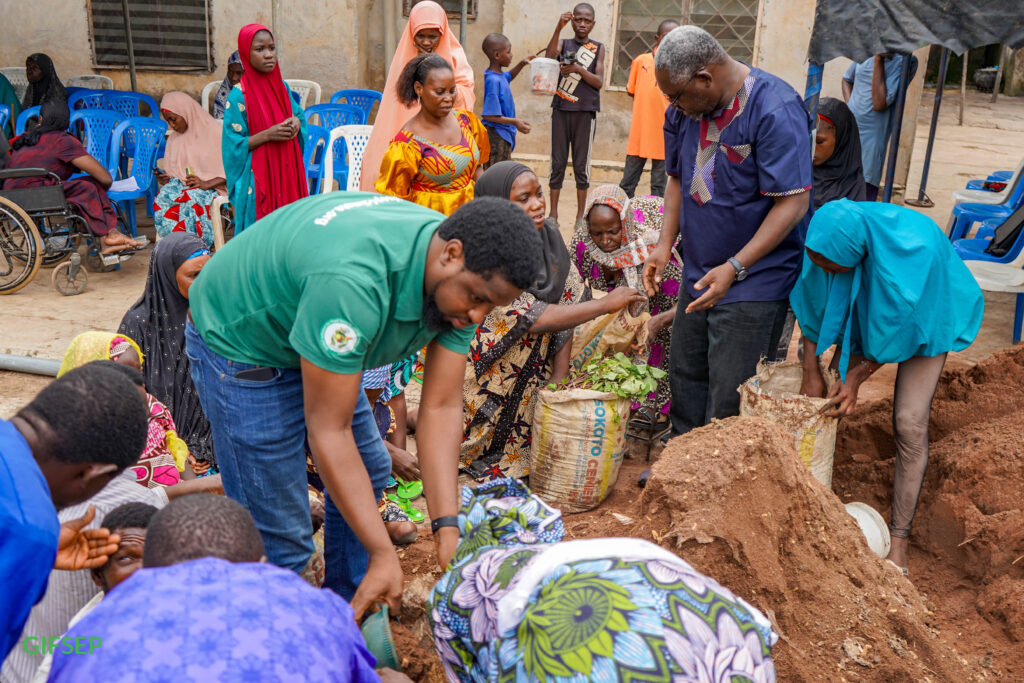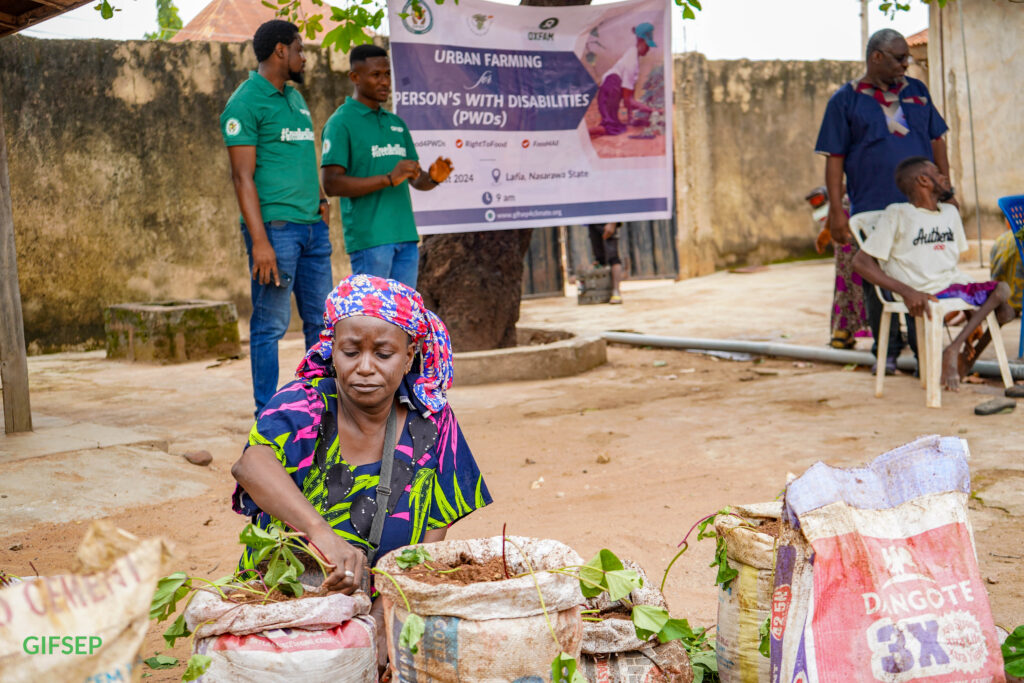The rising cost of a healthy diet in Nigeria, coupled with the growing number of citizens facing food insecurity, is a significant burden for many households across the country. The situation has far-reaching consequences on nutrition and the overall health of the nation. In 2024, the Food and Agriculture Organization (FAO) projected that 26.5 million Nigerians would experience acute food insecurity. However, this estimate has proven inadequate as the number has now surged to 31.8 million, according to recent data. Among the most vulnerable to this crisis are Persons with Disabilities (PWDs), who face an even higher risk of food insecurity due to systemic biases in social and financial inclusion.
Recognizing the unique challenges faced by PWDs, the Global Initiative for Food Security and Ecosystem Preservation (GIFSEP) launched an urban farming initiative in Lafia, Nasarawa State. This initiative, specifically focused on sack farming, aims to empower PWDs by providing them with the skills and resources to cultivate staple foods within their homes. The first phase of this training saw 50 PWDs, predominantly women, equipped with the knowledge to grow their food, thereby helping to mitigate the impact of the escalating food insecurity crisis.

For many of the PWDs involved, the GIFSEP’s initiative came as a welcome surprise. The training offered a rare opportunity for inclusion in a development intervention tailored specifically to their needs. Asaba Averson, one of the beneficiaries, expressed her gratitude, stating, “We sincerely appreciate GIFSEP and the partners for extending this training to my members as promised. We will use the training to grow our foods.”
Our commitment to including PWDs in our developmental programs goes beyond fulfilling a social requirement; it is an expression of deep social morality. Our team lead, Dr. Michael David, emphasized the emotional and psychological benefits of the initiative, stating, “It’s a way of releasing emotions and depression. Just because they have a disability does not mean they cannot add value to society. They can grow food not only to feed themselves but also to feed the nation, especially at this time when the country is grappling with issues of security and food security.”

Amid national challenges, GIFSEP’s urban farming program shines as a beacon of hope, showcasing that, with adequate backing and resources, even the most marginalized individuals can actively contribute to securing a healthier, more food-sufficient future for all Nigerians.
